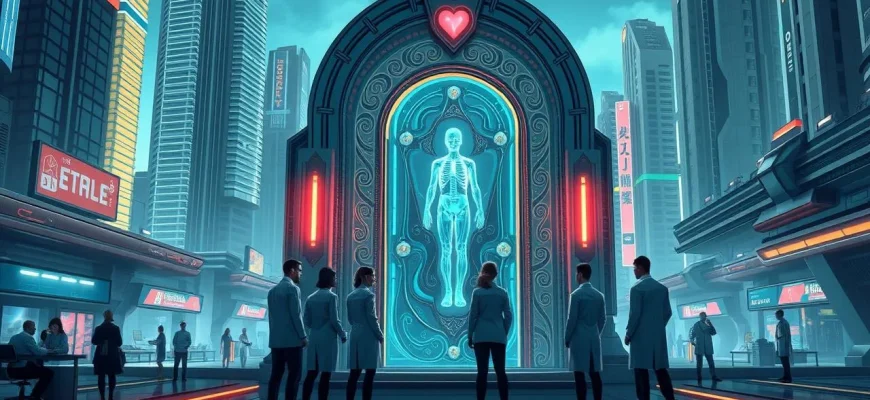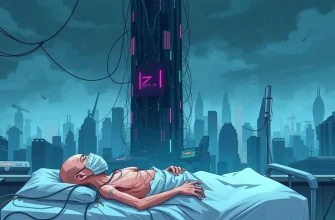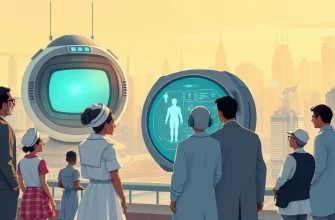Step into the world of tomorrow with this curated list of 10 sci-fi films that delve into the future of medicine. These films not only entertain but also challenge our perceptions of healthcare, technology, and ethics. From mind-bending surgeries to genetic engineering, these movies offer a glimpse into what might await us in the medical field. Whether you're a medical professional, a sci-fi enthusiast, or simply curious about the future, this collection promises to both thrill and provoke thought.
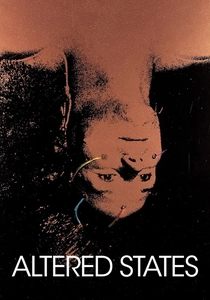
Altered States (1980)
Description: This film delves into the world of sensory deprivation and hallucinogens, exploring the medical and psychological frontiers of consciousness and identity.
Fact: The film was based on the novel by Paddy Chayefsky, who also wrote the screenplay under the pseudonym Sidney Aaron.
 Watch Now
Watch Now

Gattaca (1997)
Description: Set in a future where genetic engineering determines one's social status, Gattaca explores the implications of a society where your DNA is your destiny, focusing on the medical and ethical issues of genetic selection.
Fact: The film's title is based on the four nucleobases of DNA: guanine, adenine, thymine, and cytosine.
 Watch Now
Watch Now

The Island (2005)
Description: This film presents a world where clones are grown for organ harvesting. It raises ethical questions about the value of life and the future of medical ethics in a society where human life can be commodified.
Fact: Michael Bay, known for his action-packed blockbusters, directed this film, which delves into deeper philosophical themes than his usual fare.
 Watch Now
Watch Now
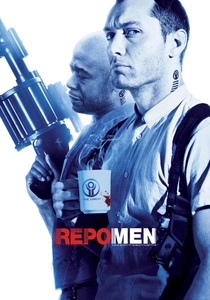
Repo Men (2010)
Description: In a future where artificial organs can be bought on credit, Repo Men follows the story of a repo man who must retrieve organs from those who default on payments, highlighting the dark side of medical advancements.
Fact: The film was based on a novel called "The Repossession Mambo" by Eric Garcia.
 Watch Now
Watch Now

The Adjustment Bureau (2011)
Description: Although more about fate and free will, this film touches on the idea of medical intervention in destiny, with agents who can alter human lives, including health outcomes.
Fact: The film is loosely based on a short story by Philip K. Dick, known for his influence on sci-fi cinema.
 Watch Now
Watch Now

The Host (2013)
Description: Based on Stephenie Meyer's novel, this film deals with alien parasites taking over human bodies, raising questions about identity, consent, and the future of medical ethics in an alien invasion scenario.
Fact: The film's director, Andrew Niccol, also wrote the screenplay for "Gattaca."
 Watch Now
Watch Now

Elysium (2013)
Description: In a future where the wealthy live on a luxurious space station, Elysium, and the rest of humanity lives on a ruined Earth, medical care is a luxury. The film explores the stark contrast in healthcare and the lengths people will go to access it.
Fact: The film's director, Neill Blomkamp, is known for his dystopian visions, and Elysium was his follow-up to the critically acclaimed "District
 Watch Now
Watch Now
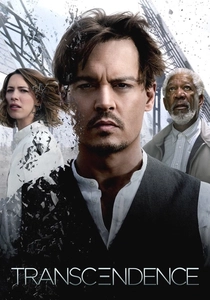
Transcendence (2014)
Description: While not strictly about medicine, this film deals with the concept of consciousness transfer, exploring the medical and ethical implications of uploading human minds into computers.
Fact: Johnny Depp's character, Dr. Will Caster, is named after the film's director, Wally Pfister, and his wife, Anna Caster.
 Watch Now
Watch Now

The Lazarus Effect (2015)
Description: This film explores the ethical boundaries of medical science when a group of researchers bring a person back to life, only to face unforeseen consequences.
Fact: The film was originally titled "Reawakening" during production.
 Watch Now
Watch Now
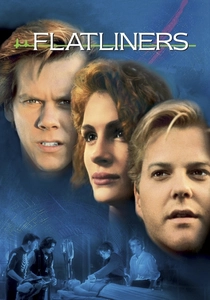
Flatliners (1990)
Description: Medical students experiment with near-death experiences, exploring the boundaries of life and death, and the psychological effects of such experiments.
Fact: A remake was released in 2017, but the original remains a cult classic.
 30 Days Free
30 Days Free

